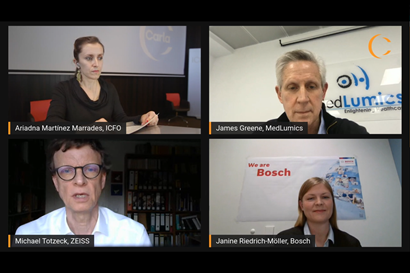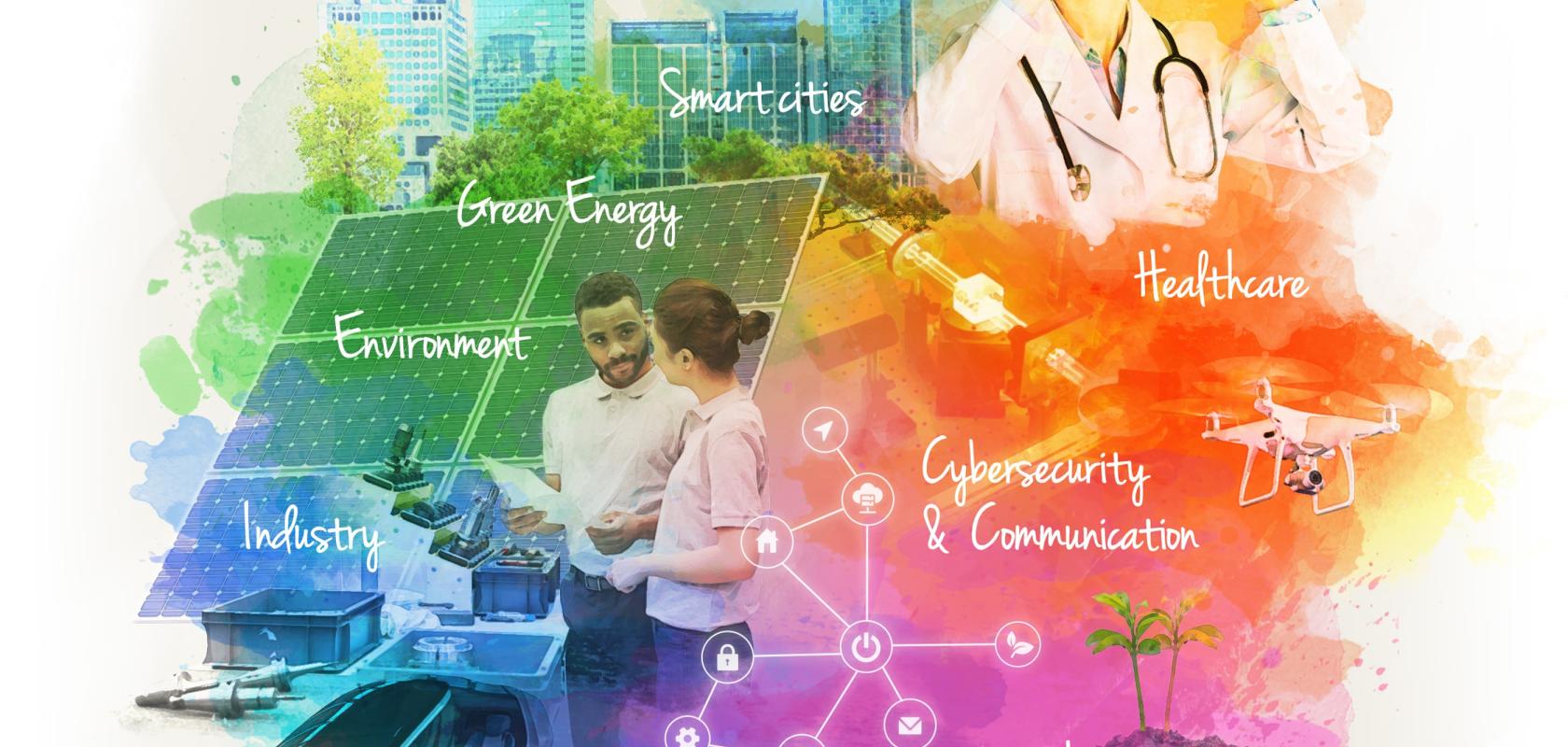Lydia Sanmartí-Vila, Silvia Tognetti, Federica Beduini and Silvia Carrasco, from the EU-funded Carla project, highlight how career events can increase women talent and diversity-at-large in photonics, helping to fill the skills gap
Photonics is a fascinating field, and one of the aspects that makes it so special is its multidisciplinary applications. This technology sector has become essential in areas such as healthcare, green energy, cybersecurity and communication, agrophotonics, mobility, smart cities, environment and across all areas of industry. The global market is estimated to be worth an astounding €650 billion in 20201. As with other deep-tech fields, a highly-educated, skilled workforce is essential to leverage this phenomenal opportunity.
The photonics workforce needs to grow to sustain the needs of the underlying industry and ecosystem, and to amplify its potential even further. The big challenge is to obtain enough skilled graduates or trained personnel, which requires the participation of more talent, especially women and other diversity minorities currently under represented in the field. Photonics requires know-how in physics but also in mathematics, engineering, biology, chemistry, nanotechnology, medicine, and many more STEM areas that are essential to the development of new knowledge and technologies that can impact society.
So, the question is, how do we attract more people to a field that competes for talent in all the STEM fields? Are STEM students, even early-career researchers, aware of the opportunities that photonics poses to them?
In 2020, an EU-funded Horizon 2020 project was launched with the aim of creating an open source tool to promote photonics careers. The project, named ‘The European Photonics Career Launch Path’ (Carla), is an initiative of European Centres for Outreach in Photonics (ECOP) and coordinated by the Institute of Photonic Sciences (ICFO) in Barcelona and is composed of a consortium of 11 partners from 10 different countries. It has designed a model for career development events, known as Carla camps, involving input from more than 80 representatives from different stakeholder groups.
These career camps aim to highlight the broad range of career opportunities that exist in photonics to STEM undergraduates, master students and PhD students and early-stage postdocs. The stakeholder groups involved included members of the photonics industry and academia, entrepreneurs, as well as STEM university students and early-stage researchers. To ensure that diversity and inclusion permeated the events, experts from diverse backgrounds were involved in their design.
The first of the Carla camps was organised by ICFO on 23, 24 and 25 February 2021, which was held virtually because of the pandemic. The agenda reflected the primary purpose of these events, to inspire and inform university students and early-stage researchers about career opportunities in photonics ‒ both in industry and academia ‒ as well as encourage innovation and entrepreneurship.

Screenshot of the industry panel
The event had to bring together a multidisciplinary community to highlight the diverse range of careers in photonics, and to build additional bridges between the photonics ecosystem and the future workforce. More than 150 people attended the event, which consisted of three well-defined blocks. The first was dedicated to introducing the photonics landscape and some of the large initiatives underlying this ecosystem in the EU, as well as tools and approaches to career development provided by professional recruiters and trainers.
The second block centered on the photonics community at large, featuring presentations from 10 professionals from varying sectors across industry and academia, including related areas such publishing and communications, investment and intellectual property. The third block was devoted to innovation and entrepreneurship and included a hands-on workshop in which participants worked in small but diverse groups. Attendees had the opportunity to network among themselves and with the speakers and experts in areas of human resources, innovation and technology transfer, academic programmes, student chapters as well as organisations working to promote diversity among groups such as gender, LGTBI and disabilities.

Screenshot of the 'photonics is everywhere' panel
Awareness of photonics careers increased
Information about the attendees and their opinions was collected both before and after the camp. The profile of the attendants was diverse in terms of gender, stage of their career, and cultural backgrounds. 52 per cent identified themselves as women, 47 per cent as men, and one per cent as non-binary. More than 30 countries were represented. 58 per cent of attendees were university students (undergraduate and master), while the rest were PhD students, early-stage postdocs or were in other situations such as returning from a career break. Half of the attendants had had no previous experience in photonics, and for those who had, it was primarily from within the academic ecosystem. On average, attendees gave the Carla camp a 4.44 point rating out of 5. The degree to which they were aware of the options available within a photonics career increased from a starting score of 2.96 to 4.02, reflecting the positive impact of the camp.

Screenshot of the academia panel
Beyond these scores, it is interesting to point out the objectives that the attendees had for participating in a Carla camp. We found that attendees were largely focused on networking and gaining a better understanding of the field of photonics in general and the professional opportunities it offers. Feedback indicated that events like the Carla camp can meet such expectations. The guided networking sessions, where participants met and talked with speakers and experts in smaller groups, were especially appreciated. One Master’s student commented: ‘Guided networking with experts was awesome’. Another undergraduate student said: ‘I'm quite surprised about how interesting, useful and motivational it has been. I didn't expect it to be so cool.’ In general, the camp was perceived as ‘an amazing platform to get glimpses of the landscape, current photonics trends, and opportunities’, reflecting the intention behind the design and implementation of the Carla camps.
In summary, university students and early-stage researchers need this type of event. They crave information about the career opportunities that training in a deep-tech industry, like photonics, can offer. They are eager to start building a network both with peers and with experts. If we want the photonics workforce to grow according to the needs of the ecosystem, we need to make it visible to all of the potential workforce. To achieve this, we need to provide a space where they can connect with the community, and give them tools to be more employable. Instilling a sense of belonging to a community, in this case of the photonics community, enhances the chances of engaging talent in career paths in this field. Competition is tough. We are competing for talent at the global level with many scientific and technology fields. If we want to succeed in bringing the best diverse minds to photonics, we need to proactively court them through more specialised career development events like the Carla camps.
Carla receives funding from the European Union’s Horizon 2020 research and innovation programme under grant agreement No 871457.
--
Lydia Sanmartí-Vila, Silvia Tognetti, Federica Beduini and Silvia Carrasco are based at the ICFO-Institut de Ciències Fotòniques, The Barcelona Institute of Science and Technology.
--
1 https://www.mordorintelligence.com/industry-reports/photonics-market-ma…


